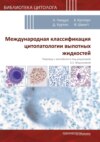Читать книгу: «Short-Stories»
A PREFATORY NOTE
This collection of short-stories does not illustrate the history of short-story writing, nor does it pretend that these are the ten best stories ever written, but it does attempt to present selections from a list of the greatest short-stories that have proved, in actual use, most beneficial to high school students.
The introduction presents a concise statement of the essentials of the history, qualities, and composition of the short-story. A brief biography of each author and a criticism covering the main characteristics of his writings serve as starting points for the recitation. The references following both the biography and criticism are given in order that the study of the short-story may be amplified, and that high school teachers may build a systematic and serviceable library about their class work in the teaching of the story. The collateral readings, listed after each story, will aid in the creation of a suitable atmosphere for the story studied, and explain many questions developed in the recitation. Only such definitions as are not easily found in school dictionaries are included in the notes.
CONTENTS
PREFATORY NOTE
INTRODUCTION:
History of the Short-story
Qualities of the Short-story
Composition of the Short-story
Books for Reference
Collections of Short-stories
THE FATHER. 1860. Björnstjerne Björnson.
THE GRIFFIN AND THE MINOR CANON. 1887. Frank R. Stockton.
THE PIECE OF STRING. 1884. Guy de Maupassant.
THE MAN WHO WAS. 1889. Rudyard Kipling.
THE FALL OF THE HOUSE OF USHER. 1839. Edgar Allan Poe.
THE GOLD-BUG. 1843. Edgar Allan Poe.
THE BIRTHMARK. 1843. Nathaniel Hawthorne.
ETHAN BRAND. 1848. Nathaniel Hawthorne.
THE SIRE DE MALÉTROIT'S DOOR. 1878. Robert Louis Stevenson.
MARKHEIM. 1884. Robert Louis Stevenson.
INTRODUCTION
HISTORY OF THE SHORT-STORY
Just when, where, and by whom story-telling was begun no one can say. From the first use of speech, no doubt, our ancestors have told stories of war, love, mysteries, and the miraculous performances of lower animals and inanimate objects. The ultimate source of all stories lies in a thorough democracy, unhampered by the restrictions of a higher civilization. Many tales spring from a loathsome filth that is extremely obnoxious to our present day tastes. The remarkable and gratifying truth is, however, that the short-story, beginning in the crude and brutal stages of man's development, has gradually unfolded to greater and more useful possibilities, until in our own time it is a most flexible and moral literary form.
The first historical evidence in the development of the story shows no conception of a short-story other than that it is not so long as other narratives. This judgment of the short-story obtained until the beginning of the nineteenth century, when a new version of its meaning was given, and an enlarged vision of its possibilities was experienced by a number of writers almost simultaneously. In the early centuries of story-telling there was only one purpose in mind – that of narrating for the joy of the telling and hearing. The story-tellers sacrificed unity and totality of effect as well as originality for an entertaining method of reciting their incidents.
The story of Ruth and the Prodigal Son are excellent short tales, but they do not fulfill the requirements of our modern short-story for the reason that they are not constructed for one single impression, but are in reality parts of possible longer stories. They are, as it were, parts of stories not unlike Dr. Jekyll and Mr. Hyde and A Lear of the Steppes, and lack those complete and concise artistic effects found in the short-stories, Markheim and Mumu, by the same authors. Both Ruth and the Prodigal Son are exceptionally well told, possess a splendid moral tone, and are excellent prophecies of what the nineteenth century has developed for us in the art of short-story writing.
The Greeks did very little writing in prose until the era of their decadence, and showed little instinct to use the concise and unified form of the short-story. The conquering Romans followed closely in the paths of their predecessors and did little work in the shorter narratives. The myths of Greece and Rome were not bound by facts, and opened a wonderland where writers were free to roam. The epics were slow in movement, and presented a list of loosely organized stories arranged about some character like Ulysses or AEneas.
During the mediaeval period story-tellers and stories appeared everywhere. The more ignorant of these story-tellers produced the fable, and the educated monks produced the simple, crude and disjointed tales. The Gesta Romanorum is a wonderful storehouse of these mediaeval stories. In the Decameron Boccaccio deals with traditional and contemporary materials. He is a born story-teller and presents many interesting and well-told narratives, but as Professor Baldwin1 has said, more than half are merely anecdotes, and the remaining stories are bare plots, ingeniously done in a kind of scenario form. Three approach our modern idea of the short-story, and two, the second story of the second day and the sixth story of the ninth day, actually attain to our standard. Boccaccio was not conscious of a standard in short-story telling, for he had none in the sense that Poe and Maupassant defined and practiced it. Chaucer in England told his stories in verse and added the charm of humor and well defined characters to the development of story-telling.
In the seventeenth century Cervantes gave the world its first great novel, Don Quixote. Cervantes was careless in his work and did not write short-stories, but tales that are fairly brief. Spain added to the story a high sense of chivalry and a richness of character that the Greek romance and the Italian novella did not possess. France followed this loose composition and lack of beauty in form. Scarron and Le Sage, the two French fiction writers of this period, contributed little or nothing to the advancement of story-telling. Cervantes' The Liberal Lover is as near as this period came to producing a real short-story.
The story-telling of the seventeenth century was largely shaped by the popularity of the drama. In the eighteenth century the drama gave place to the essay, and it is to the sketch and essay that we must go to trace the evolution of the story during this period. Voltaire in France had a burning message in every essay, and he paid far greater attention to the development of the thought of his message than to the story he was telling. Addison and Steele in the Spectator developed some real characters of the fiction type and told some good stories, but even their best, like Theodosius and Constantia, fall far short of developing all the dramatic possibilities, and lack the focusing of interest found in the nineteenth century stories. Some of Lamb's Essays of Elia, especially the Dream Children, introduce a delicate fancy and an essayist's clearness of thought and statement into the story. At the close of this century German romanticism began to seep into English thought and prepare the way for things new in literary thought and treatment.
The nineteenth century opened with a decided preference for fiction. Washington Irving, reverting to the Spectator, produced his sketches, and, following the trend of his time, looked forward to a new form and wrote The Spectre Bridegroom and Rip Van Winkle. It is only by a precise definition of short-story that Irving is robbed of the honor of being the founder of the modern short-story. He loved to meander and to fit his materials to his story scheme in a leisurely manner. He did not quite see what Hawthorne instinctively followed and Poe consciously defined and practiced, and he did not realize that terseness of statement and totality of impression were the chief qualities he needed to make him the father of a new literary form. Poe and Maupassant have reduced the form of the short-story to an exact science; Hawthorne and Harte have done successfully in the field of romanticism what the Germans, Tieck and Hoffman, did not do so well; Bjornson and Henry James have analyzed character psychologically in their short-stories; Kipling has used the short-story as a vehicle for the conveyance of specific knowledge; Stevenson has gathered most, if not all, of the literary possibilities adaptable to short-story use, and has incorporated them in his Markheim.
France with her literary newspapers and artistic tendencies, and the United States with magazines calling incessantly for good short-stories, and with every section of its conglomerate life clamoring to express itself, lead in the production and rank of short-stories. Maupassant and Stevenson and Hawthorne and Poe are the great names in the ranks of short-story writers. The list of present day writers is interminable, and high school students can best acquire a reasonable appreciation of the great work these writers are doing by reading regularly some of the better grade literary magazines.
For a comprehensive view of specimens representing the history and
development of the short-story, students should have access to Brander
Matthews' The Short Story, Jessup and Canby's The Book of theShort-Story, and Waite and Taylor's Modern Masterpieces of ShortProse Fiction.
QUALITIES OF THE SHORT-STORY
It was not until well along in the nineteenth century that any one attempted to define the short-story. The three quotations given here are among the best things that have been spoken on this subject.
"The right novella is never a novel cropped back from the size of a tree to a bush, or the branch of a tree stuck into the ground and made to serve for a bush. It is another species, destined by the agencies at work in the realm of unconsciousness to be brought into being of its own kind, and not of another," – W.D. Howells, North American Review, 173:429.
"A true short-story is something other and something more than a mere story which is short. A true short-story differs from the novel chiefly in its essential unity of impression. In a far more exact and precise use of the word, a short-story has unity as a novel cannot have it… A short-story deals with a single character, a single event, a single emotion, or the series of emotions called forth by a single situation. – Brander Matthews, The Philosophy of the Short-Story.
"The aim of a short-story is to produce a single narrative effect with the greatest economy of means that is consistent with the utmost emphasis." – Clayton Hamilton, Materials and Methods of Fiction.
The short-story must always have a compact unity and a direct simplicity. In such stories as Björnson's The Father and Maupassant's The Piece of String this simplicity is equal to that of the anecdote, but in no case can an anecdote possess the dramatic possibilities of these simple short-stories; for a short-story must always have that tensity of emotion that comes only in the crucial tests of life.
The short-story does not demand the consistency in treatment of the long story, for there are not so many elements to marshal and direct properly, but the short-story must be original and varied in its themes, cleverly constructed, and lighted through and through with the glow of vivid imaginings. A single incident in daily life is caught as in a snap-shot exposure and held before the reader in such a manner that the impression of the whole is derived largely from suggestion. The single incident may be the turning-point in life history, as in The Man Who Was; it may be a mental surrender of habits fixed seemingly in indelible colors in the soul and a sudden, inflexible decision to be a man, as in the case of Markheim; or it may be a gradual realization of the value of spiritual gifts, as Björnson has concisely presented it in his little story The Father.
The aim of the short-story is always to present a cross-section of life in such a vivid manner that the importance of the incident becomes universal. Some short-stories are told with the definite end in view of telling a story for the sake of exploiting a plot. The Cask of Amontillado is all action in comparison with The Masque of the Red Death. The Gold-Bug sets for itself the task of solving a puzzle and possesses action from first to last. Other stories teach a moral. Ethan Brand deals with the unpardonable sin, and The Great Stone Face is our classic story in the field of ideals and their development. Hawthorne, above all writers, is most interested in ethical laws and moral development. Still other stories aim to portray character. Miss Jewett and Mrs. Freeman veraciously picture the faded-put womanhood in New England; Henry James and Björnson turn the x-rays of psychology and sociology on their characters; Stevenson follows with the precision of the tick of a watch the steps in Markheim's mental evolution.
The types of the short-story are as varied as life itself. Addison, Lamb, Irving, Warner, and many others have used the story in their sketches and essays with wonderful effect. The Legend of Sleepy Hollow is as impressive as any of Scott's tales. The allegory in The Great Stone Face loses little or nothing when compared with Bunyan's Pilgrim's Progress. No better type of detective story has been written than the two short-stories, The Murders in the Rue Morgue and The Purloined Letter. Every emotion is subject to the call of the short-story. Humor with its expansive free air is not so well adapted to the short-story as is pathos. There is a sadness in the stories of Dickens, Garland, Page, Mrs. Freeman, Miss Jewett, Maupassant, Poe, and many others that runs the whole gamut from pleasing tenderness in A Child's Dream of a Star to unutterable horror in The Fall of the House of Usher.
The short-story is stripped of all the incongruities that led Fielding, Scott, and Dickens far afield. All its parts harmonize in the simplest manner to give unity and "totality" of impression through strict unity of form. It is a concentrated piece of life snatched from the ordinary and uneventful round of living and steeped in fancy until it becomes the acme of literary art.
COMPOSITION OF THE SHORT-STORY
Any student who wishes to express himself correctly and pleasingly, and desires a keener sense for the appreciation of literary work must write. The way others have done the thing never appears in a forceful light until one sets himself at a task of like nature. Just so in the study of this text. To find and appreciate the better points of the short-story, students must write stories of their own, patterned in a small way on the technique of the masterpieces.
The process of short-story writing follows in a general way the following program. In the first place the class must have something interesting and suggestive to write about. Sometimes the class can suggest a subject; newspapers almost every day give incidents worthy of story treatment; happenings in the community often give the very best material for stories; and phases of the literature work may well be used in the development of students' themes. Change the type of character and place, reconstruct the plot, or require a different ending for the story, leaving the plot virtually as it is, and then assign to the class. Boys and girls should invariably be taught to see stories in the life about them, in the newspapers and magazines on their library tables, and in the masterpieces they study in their class work.
After the idea that the class wishes to develop has been definitely determined and the material for this development has been gathered and grouped about the idea, the class should select a viewpoint and proceed to write. Sometimes the author should tell the story, sometimes a third person who may be of secondary importance in the story should be given the rôle of the story-teller, sometimes the whole may be in dialogue. The class should choose a fitting method.
Young writers should be very careful about the beginning of a story. An action story should start with a striking incident that catches the reader's attention at once and forecasts subsequent happenings. In every case this first incident must have in it the essence of the end of the story and should be perfectly logical to the reader after he has finished the reading. A story in which the setting is emphasized can well begin, with a description and contain a number of descriptions and expositions, distributed with a sense of propriety throughout the theme. A good method to use in the opening of a character story is that of conversation. An excellent example of a sharp use of this device is Mrs. Freeman's Revolt of Mother, where the first paragraph is a single spoken word.
Every incident included in the story should be tested for its value in the development of the theme. An incident that does not amplify certain phases of the story has no right to be included, and great care should be used in an effort to incorporate just the material necessary for the proper evolution of the thought. The problem is not so much what can be secured to be included in the story, but rather, after making a thorough collection of the material, what of all these points should be cast out.
The ending must be a natural outgrowth of the development found in the body of the composition. Even in a story with a surprise ending, of which we are tempted to say that we have had no preparation for such a turn in the story, there must be hints – the subtler the better – that point unerringly and always toward the end. The end is presupposed in the beginning and the changing of one means the altering of the other.
Young writers have trouble in stopping at the right place. They should learn, as soon as possible, that to drag on after the logical ending has been reached spoils the best of stories. It is just as bad to stop before arriving at the true end. In other words there is only one place for the ending of a story, and in no case can it be shifted without ruining the idea that has obtained throughout the theme.
There are certain steps in the development of story-writing that should be followed if the best results are to be obtained. The first assignment should require only the writing of straight narrative. The Arabian Nights Tales and children's stories represent this type of writing and will give the teacher valuable aid in the presentation of this work. After the students have produced simple stories resembling the Sinbad Voyages, they should next add descriptions of persons and places and explanations of situations to develop clearness and interest in their original productions. Taking these themes in turn students should be required to introduce plot incidents that complicate the simple happenings and divert the straightforward trend of the narrative. Now that the stories are well developed in their descriptions, expositions, and plot interests they should be tested for their emotional effects. Students should go through their themes, and by making the proper changes give in some cases a humorous and in others a pathetic or tragic effect. These few suggestions are given to emphasize the facts that no one conceives a story in all its details in a moment of inspiration, and that there is a way of proceeding that passes in logical gradations from the simplest to the most complex phases of story writing.
Franklin and Stevenson knew no rules for writing other than to practice incessantly on some form they wished to imitate. Hard work is the first lesson that boys and girls must learn in the art of writing, and a systematic gradation of assignments is what the teacher must provide for his students. Walter Besant gave the following rules for novel writers. Some of them may be suggestive to writers of the high school age, so the list is given in its complete form. "(1) Practice writing something original every day. (2) Cultivate the habit of observation. (3) Work regularly at certain hours. (4) Read no rubbish. (5) Aim at the formation of style. (6) Endeavor to be dramatic. (7) A great element of dramatic skill is selection. (8) Avoid the sin of writing about a character. (9) Never attempt to describe any kind of life except that with which you are familiar. (10) Learn as much as you can about men and women. (11) For the sake of forming a good natural style, and acquiring command of language, write poetry."
York: Longmans, Green, & Company, 1904.
Покупайте книги и получайте бонусы в Литрес, Читай-городе и Буквоеде.
Участвовать в бонусной программе




















